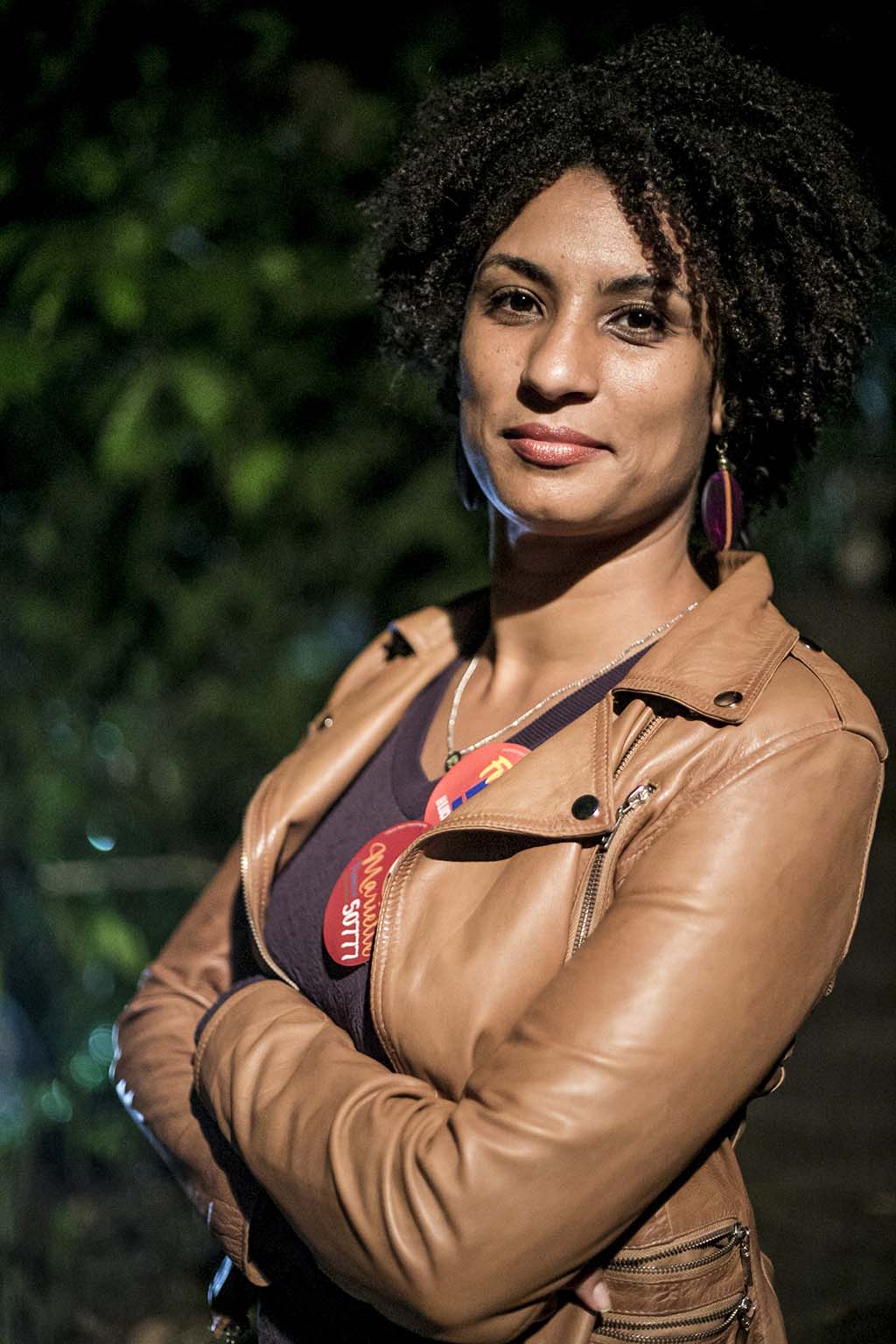Marielle Franco was a Rio de Janeiro (Brazil) city councilmember, and member of the Party for Socialism and Liberty. She was also a member of the LGBT community and a human rights activist, especially against police brutality in the favelas, or slums of the city. On March 14, 2018, she was shot four times in the head and killed by two unknown attackers. Many believe what happened was an assassination.
She was born Marielle Francisco da Silva on July 27, 1979 in Rio de Janeiro, Brazil. She was raised by her parents Marielle and Antonio in a complex of sixteen slums called Maré, in Rio. At age 19, she gave birth to her daughter, Luyara Santos. She then earned a scholarship to the Pontifical Catholic University of Rio in 2002 where she received a bachelors’ degree in social sciences four years later. She earned a masters’ degree in public administration from Fluminense Federal University in 2012. Before her death, she lived with her daughter and her girlfriend, Monica Tereza Benício, whom she dated for thirteen years and had planned to marry in 2019.
Franco’s master’s thesis was titled “UPP: The Decline of the Favela in Three Letters,” translated to English, and examined the role of “Pacifying Police Units” which are a law enforcement tool in Brazil attempting to retake control of the city’s favelas from gangs and drugs. In 2005, after the death of a close friend in a shootout between police and drug traffickers, Franco joined Marcelo Freixo, a state representative for the Socialist party, as his congressional consultant. During those years she helped create the Committee for the Defense of Human Rights and Citizenship. In 2016, she was elected to the Rio City Council with 46,000 votes becoming the sole black female representative.
Her murder was deemed suspicious for several reasons: her attendance at the political event “Young Black Women Moving Structures” that night, her recently filed formal complaint against police for suspected murders, and one month prior, Brazil’s President Michel Temer had ordered the military to occupy the city in a security attempt, but she opposed the intervention publicly and had just been appointed to monitor the militarization of the police. It was later discovered that the bullets fired at her were originally sold to the Federal Police, reportedly stolen, and used in other killings.
Demonstrations were held across the globe, and approximately 100,000 people protested on March 15 in Rio in Franco’s memory. Amnesty International and the UN of Brazil were among the many organizations demanding a serious investigation into the drive-by shooting. Her final words on Twitter posted on March 13 addressed the issue of police violence in Brazil, an issue she had battled against most of her life. She prophetically and poignantly asked: “How many others will have to die for this war to end?”

